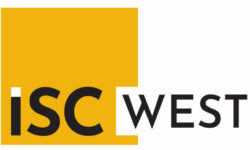Why Did Pittway Sell?
Just before Christmas 1999, the shocking news that Honeywell had purchased Pittway Corp. took most of the security industry by surprise.
After all, Pittway has been a major consolidator in manufacturing and distribution, with revenues in 1998 of $1.3 billion. Why did the company sell? King Harris, CEO of Pittway Corp., based in Chicago, answers that query and many other burning questions in this exclusive interview with Security Sales.
Primarily, Harris cites Honeywell’s ability to be “almost a turnkey provider of control solutions and energy management solutions” as the key reason for the sale. He hopes that approach will be transferred to alarm system sales.
Harris also consummated the $2.2 billion deal because of his desire to reward long-term Pittway shareholders, including his family. The Harris family – which includes King Harris’ father, Neison, chairman of the board, and his uncle, Irving, chairman of the executive committee—owned 4.2 million common shares and 6.4 million Class A shares.
Honeywell acquired Pittway’s shares for $45.50 per share in cash, and assumed the company’s relatively small $167 million in net debt. The deal is on the heels of a $14 billion merger between Honeywell and Allied Signal. Plus, Honeywell purchased sensor manufacturer C&K Systems in June 1999 as well as access control manufacturer WSE.
Pittway companies are now incorporated into Honeywell’s $3.4 billion Home and Building Controls division, whose core business is commercial HVAC and building management systems. The division also includes Honeywell’s Minneapolis-based installation and monitoring business, which gives rise to murmurs of a channel conflict by combining manufacturing and installation.
The “jewels” of the deal are Ademco, Pittway’s flagship brand name panel maker, and ADI, the industry’s largest distributor with 117 branches.
Security Sales: Why did Pittway sell to Honeywell?
King Harris: There are a number of reasons. First of all, we saw obvious advantages by combining with Honeywell. We have believed for many years the entire alarm industry is moving toward integrated systems. We believe that we are the recognized leaders in burglar and fire alarm systems. We also believe that Honeywell is a clear-cut leader in HVAC systems, as well as high-level integrated systems. Personally, I was very impressed by Honeywell’s expertise in enterprise solution selling.
SS: What do you mean by “enterprise solution selling?”
Harris: The Honeywell sales team, in its high-level systems area, is run by Kevin Gilligan, who is also president of Honeywell’s Home and Building Controls division. Honeywell is not designed as a company to sell equipment; what Honeywell does is sell solutions. Its sales staff sits down with the management of a target customer and talks about their problems. Then they come back and suggest ways they can help solve those problems. Solving problems is a lot more helpful than just selling equipment.
Honeywell is a company that monitors the condition of systems and handles maintenance and repair through subcontractors in localities. It is really a turnkey provider of control solutions and energy-management solutions. It is a very interesting approach that is currently not done in the alarm business.
SS: What do you say to dealers concerned about the channel conflict of a manufacturer that also has a potentially competitive installation arm, that being Honeywell in Minnesota?
Harris: We have done business with Honeywell for as long as I can remember. When I came into the alarm business in 1971, we were doing business with Honeywell. During that period, Honeywell bought quite a number of central station companies. All along the way, we have sold Honeywell alarm products, smoke detectors and fire alarm controls … always at an arm’s- length basis. Our companies will continue to sell to Honeywell operations at an arm’s-length basis. They are not going to get any better service than our existing customers do.
SS: What will be the legacy of the Pittway Corp.?
Harris: We have an evolving industry. One thing is for sure for every equipment supplier: Whatever it sells today, it will probably not be selling five years from today. Twenty years from today, we will be at least four to 10 generations ahead of where we are now. It’s hard to imagine, especially in areas like smoke detection and space protection. The pace of change seems to be picking up. What we are selling today will be in museums in 20 years. Hopefully, Pittway’s legacy will be putting in place the organization and people to deal with the next 10 generations of products.
If you enjoyed this article and want to receive more valuable industry content like this, click here to sign up for our FREE digital newsletters!

Security Is Our Business, Too
For professionals who recommend, buy and install all types of electronic security equipment, a free subscription to Commercial Integrator + Security Sales & Integration is like having a consultant on call. You’ll find an ideal balance of technology and business coverage, with installation tips and techniques for products and updates on how to add to your bottom line.
A FREE subscription to the top resource for security and integration industry will prove to be invaluable.













